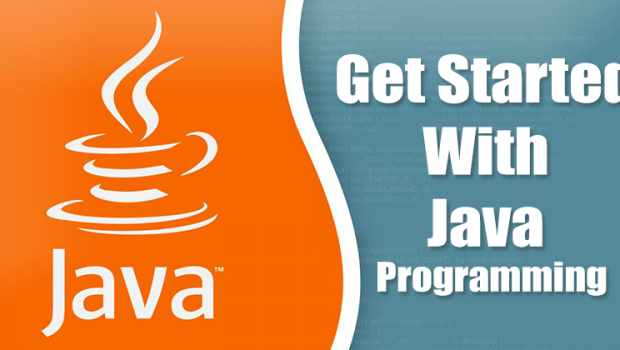


JAVA! WHAT IS IT?
Java is a widely used object-oriented programming language and software platform that runs on billions of devices, including notebook computers, mobile devices, gaming consoles, medical devices and many others.
So, you want to program in Java? That's great, and you've come to the right place.
Whether you are an experienced programmer or not, this course is intended for everyone who wishes to learn the Java programming language.
WELCOME TO JAVA
One major advantage of developing software with Java is its portability. Once you have written code for a Java program on a notebook computer, it is very easy to move the code to a mobile device. When the language was invented in 1991 by James Gosling of Sun Microsystems (later acquired by Oracle), the primary goal was to be able to "write once, run anywhere."

Frequently Asked Questions
Yes you can.
Learn to program in the Java programming language. This course assumes no prior programming knowledge, just a desire to learn to program.
Java is a simple language. Java was initially modeled after C and C++, minus some potentially confusing features. Pointers, multiple implementation inheritance, and operator overloading are some C/C++ features that are not part of Java. A feature not mandated in C/C++, but essential to Java, is a garbage-collection facility that automatically reclaims objects and arrays.
Java is both a programming language and a platform for running compiled Java code. This platform consists mainly of the JVM, but also includes an execution environment that supports the JVM's execution on the underlying (native) platform. The JVM includes several components for loading, verifying, and executing Java code.
With as little as 10,000/= Kenya shillings you can be a Java Expert..
Java is a highly portable language as it must be executed through a cross-platform compatible Java Virtual Machine (JVM).Furthermore, Android apps are also developed using Java since the Android Operating System runs on a Java language environment.
Stay ahead of the curve by EMBRACING DIGITAL TRANSFORMATION
You must know at least the basics of how to use a computer, and should be able to start a command line shell. If you are new to programming then Introduction to Programming is strongly recommended. If you already know C++ or any other Object-Oriented language, Java should be easy to pick up
If you work with computers at all, you probably think of Java as a computing platform rather than as a coffee or an island in the Pacific. Java has generated tremendous buzz in its first five years of existence. Some of the excitement is genuine; some is just hype. But at the end of the day, you're probably wondering if you should learn Java.
The answer is "Yes." I'll explain why.
Java is the 3rd Most Demanded Skill on Angel list.
Many tech giants such as Google or Amazon also use Java to develop the backend of their websites, and because Java has pretty good performance, a lot of startups who reach the scaling point would integrate their apps with Java to power features that need to have good performance.
Length of Study - 2 weeks
At runtime, a Java program indirectly executes on the underlying platform (like Windows or Linux) via a virtual machine (which is a software representation of a hypothetical platform) and the associated execution environment. The virtual machine translates the Java program's bytecodes (instructions and associated data) to platform-specific instructions through interpretation. Interpretation is the act of figuring out what a bytecode instruction means and then choosing equivalent "canned" platform-specific instructions to execute. The virtual machine then executes those platform-specific instructions.
Latest News
What Is Coding? And why Learn coding? Whether it’s used to count monthly car sales or extract photos from a
It’s often said that large language models (LLMs) along the lines of OpenAI’s ChatGPT are a black box, and certainly, there’s some
Twitter Chief Executive Elon Musk on Tuesday revealed details about new features including adding calls and encrypted messaging coming to the platform. Last
WhatsApp is allegedly accessing microphones on some Android devices in the background. The issue came to the spotlight after a Twitter
Get your right solution, contact us now.